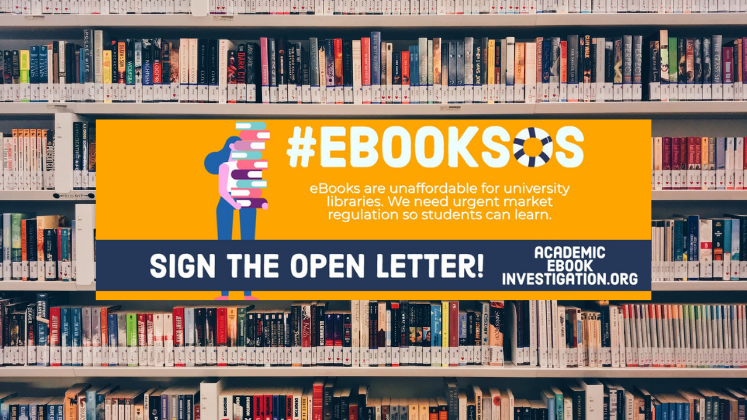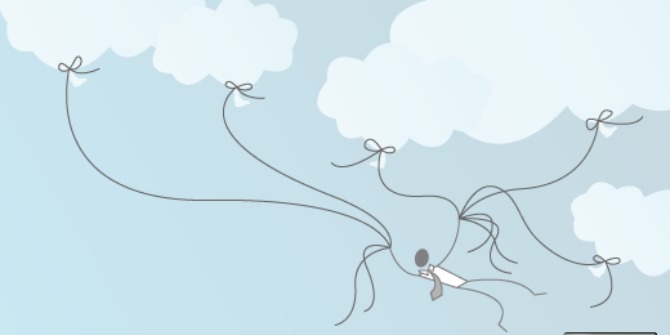 Each year OpenCon brings together students and early career academic professionals from around the world to advance Open Access, Open Education and Open Data. Nick Shockey and Joseph McArthur announce here the next OpenCon dates. In addition, Chris Hartgerink takes a look back at OpenCon 2015 and reflects on how the conference became the catalyst for a variety of deliberate actions around scholarly communication.
Each year OpenCon brings together students and early career academic professionals from around the world to advance Open Access, Open Education and Open Data. Nick Shockey and Joseph McArthur announce here the next OpenCon dates. In addition, Chris Hartgerink takes a look back at OpenCon 2015 and reflects on how the conference became the catalyst for a variety of deliberate actions around scholarly communication.
Each year OpenCon brings together students and early career academic professionals from around the world to advance Open Access, Open Education and Open Data. OpenCon 2015 featured keynotes from leading figures, including Jimmy Wales, co-founder of Wikipedia. Combined with 30 satellite events across 20 countries, OpenCon reached more than 1,600 participants in 2015.
We’re announcing that OpenCon 2016 will take place on November 12-14, 2016 in Washington, DC. OpenCon seeks to bring together energetic, engaged students and early career academic professionals—regardless of their ability to cover travel costs. Because of this, attendance at OpenCon is by application only, and the majority of past participants have received travel scholarships.
OpenCon’s mission is to turn interest and ideas into collaboration and action. To illustrate this with one example, we’ve invited Chris Hartgerink, an alumnus of OpenCon 2015 in Brussels, to share his experience attending OpenCon last year.
 To learn more on how to apply visit opencon2016.org
To learn more on how to apply visit opencon2016.org
OpenCon 2015 reflection: From discontent to collective action, or how a tiny cog makes a difference.
 Chris Hartgerink shares his experiences at last year’s OpenCon 2015 and looks at how the conference became the catalyst and support network for a variety of deliberate actions around scholarly communication.
Chris Hartgerink shares his experiences at last year’s OpenCon 2015 and looks at how the conference became the catalyst and support network for a variety of deliberate actions around scholarly communication.
I remember what kind of person I was last year: someone who was not content with the status quo, but did little about it, feeling that I was too tiny a cog in the humonguous machine of society. I also remember being disheartened by much that was going on in society — and still am. However, OpenCon 2015 was one of the catalysts that started shifting some of this discontent into action.
Prior to attending, I did not really know what to expect of OpenCon, considering that I had been rejected to attend in 2014 and needed to fill out an application form that asked more questions than my recent job interview. I was mostly interested because of my efforts to be transparent in my own work and hoping to connect with other researchers about openness. I did not know how to properly answer the application questions and honestly just rushed them one day. That was when OpenCon started, in hindsight.
A few days after submitting my application, I received an email from one of the organizers, Joe. He put me in touch with others in the OpenCon community (i.e., ContentMine), but in the end our meeting not only proved fruitful, we have also built a social connection in the last year. OpenCon is all about building a community — and they do a great job at that in my opinion.
 Image credit: Gears (pixabay public domain)
Image credit: Gears (pixabay public domain)
During the conference, this community quickly showed itself to be vibrant, approachable, and full of energy. Prior to the conference, I was still somewhat afraid that the OpenCon community would prove a closed one despite its open ideas. On the contrary! OpenCon is a highly inclusive community (and big) where everyone is equally approachable. The night before the conference, I was invited to join other attendees, who were strangers to me, for dinner. Breakfast tables during the conference were full of lively discussion and when I was seated alone, other attendees regularly asked to join. Keynote speakers were just as approachable and happy to meet you as “regular” attendees (I remember Michael Eisen singing at some point). Note that I am an introvert person and social interaction typically requires energy for me instead of providing energy. This community, however, required only minimal energy, which indicated that I felt highly at ease with all these strangers in a matter of mere hours.
Not only is the community socially inclusive, it is also intellectually inclusive. Keynote speakers provide the initial food for thought, with their comments heavily being debated on Twitter and during the (frequent) breaks between sessions. During the conference, people would rebut, strengthen, or question the things keynote speakers were saying. This provided an additional dimension to the conference that, for me, was wholly different from the (relatively) boring, traditional conferences I had been to where keynotes only received Q&A at the end (I am not discounting those conferences!). Moreover, with panel sessions such as “Epic Open Wins”, where attendees tell about what they have done for more openness in the last year, the energy level rises even more. Sitting there, I found myself regularly thinking “How do these people do all these things and I do so little?” It greatly motivated me to work on doing more myself.
And that is what OpenCon does: it motivates the community to act upon what individuals find important, and provides you with a network that could help do those things, but also helps in having fun while doing those things. After OpenCon, where I came out about my problems with Elsevier and Julia Reda asked me to step out into the limelight, I have started working on advocating for copyright reform. A year ago I would not have dreamt about calling European Parliament members, writing to the European Commission, running for the European Open Science Policy Platform, or taking up a lawyer to challenge Elsevier’s decision to undermine my research (ongoing…). And yet I am doing these things despite the fact that I am still just a tiny cog in a humongous machine — at OpenCon I saw that even a tiny cog can have an effect.
If you were already interested or have become interested in OpenCon, know that OpenCon 2016 applications are opening on June 6th. I will apply again as well, after the splendid experience of OpenCon 2015. I hope to physically be at the conference and experience the enthusiasm that roams at OpenCon.
Applications to attend OpenCon 2016 open June 6th. For more information about the conference and to sign up for updates, visit www.opencon2016.org/updates. You can follow OpenCon on Twitter at @Open_Con or #opencon, and on Facebook.
Note: This article gives the views of the authors, and not the position of the Impact of Social Science blog, nor of the London School of Economics. Please review our Comments Policy if you have any concerns on posting a comment below.
Nick Shockey is the Director of Programs & Engagement for SPARC and founding Director of the Right to Research Coalition, an international alliance of student organizations that promote Open Access to the results of research through advocacy and education.
Joseph McArthur is the Assistant Director of the Right to Research Coalition.
Chris Hartgerink specializes in statistical detection of data fabrication and extracting statistical data from the research literature with Text- and Data Mining procedures.








2 Comments